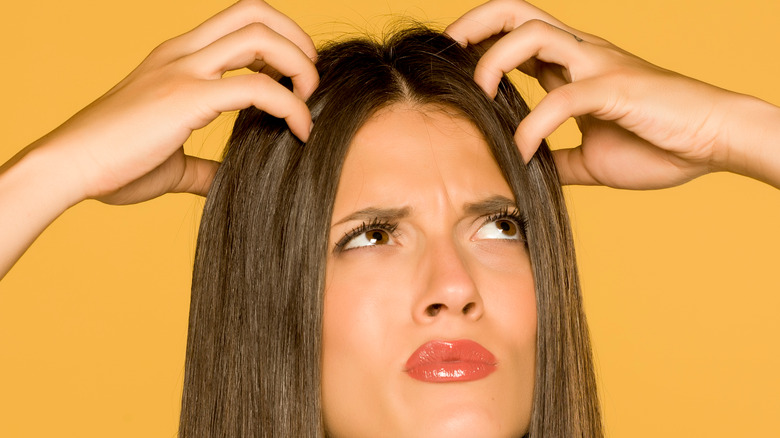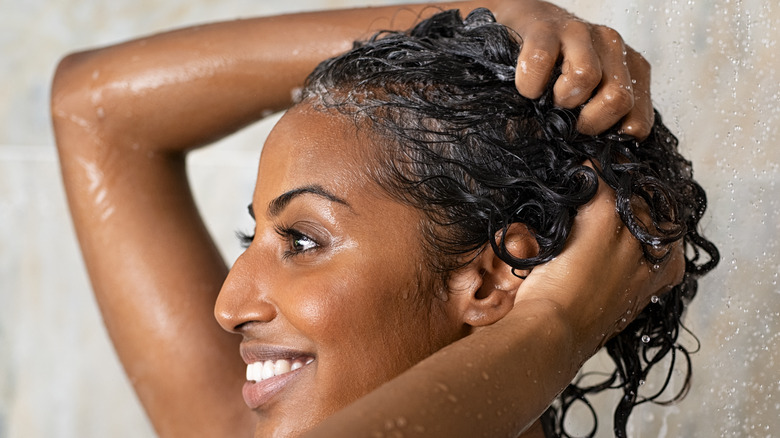What It Really Means When Your Scalp Itches
Having an itchy scalp is never fun. If you find yourself constantly scratching your head, you might be wondering why. There are actually multiple reasons why your scalp might start itching, explains the American Academy of Dermatology Association. One of the most common culprits behind an itchy scalp is dandruff, which is evidenced by dryness and flaky skin. While definitely not the most pleasant thought, the itchiness could also be due to head lice. This tiny bug lays its eggs on your scalp and feeds on the blood just below the surface, according to the Mayo Clinic.
The American Academy of Dermatology Association also points to an allergic reaction as a cause for your itchiness. In this case, you would likely be having a reaction to a hair care or styling product. If you haven't tried any new products lately, perhaps the cause is fungal in nature, such as scalp ringworm. This fungal infection causes red bumps and itchiness and can affect the skin anywhere on your body, including the scalp.
Another reason for that bothersome itch could be hives, which are characterized by a scattering of raised red bumps (via the American Academy of Dermatology Association). If you don't notice any bumps or rashes on your scalp, you may simply have a nerve problem. Other possible causes of scalp itchiness are scalp psoriasis, skin cancer, and atopic dermatitis. Regardless of the reason for your itchy scalp, the good news is that there are ways to treat each possible cause.
How to treat an itchy scalp
Most of the treatments for an itchy scalp consist of a topical medication or shampoo, such as in the case of dandruff, as per Healthline. You can pick up an over-the-counter shampoo made with ingredients that specifically treat dandruff, including salicylic acid and pyrithione zinc. It will likely take more than 1 wash to cure your dandruff. When it comes to head lice, a topical treatment is also in order. Pediculicide is the most popular treatment for lice, which actively kills the bugs on your head, explains WebMD. You can also use a comb to get rid of eggs and dead lice. To prevent the bug from taking over your scalp again, you will need to wash all bedding, linens, and other items that come in contact with your head.
Unfortunately, there are no cures for scalp psoriasis. However, you can find relief from the itchiness by getting rid of the scales that cause redness and discomfort, per WebMD. This will require applying an over-the-counter product with salicylic acid, zinc pyrithione, or lactic acid and then shampooing your scalp with a salicylic acid soap to remove the scales. You will then need to keep your skin hydrated with a moisturizing cream.
The American Academy of Dermatology Association advises anyone suffering from hives to see a dermatologist if the condition doesn't go away on its own. Other conditions that require a visit to the doctor are skin cancer, nerve problems, scalp ringworm, and atopic dermatitis.


